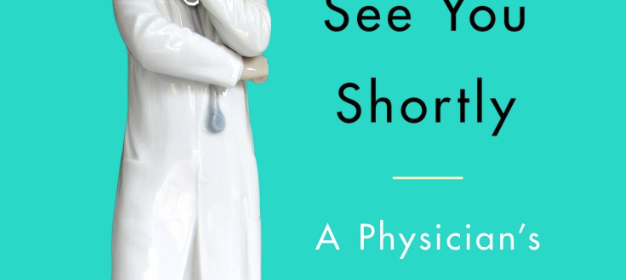“The Real Doctor Will See You Shortly: A Physician’s First Year” Book Review

AHAMAD NISAR – How exactly does a student transition into a doctor — is it the rigor of pre-med courses, medical school, or something even further down the road? Pre-med students have all had their share of test anxiety, sleepless nights, and hair-wrenching stress. What they don’t realize is that none of this compares to the real threshold separating a student from a doctor: residency. The Real Doctor Will See You Shortly follows Matt McCarthy M.D. (an ambitious Ivy-League grad who nearly had a career in professional baseball but opted for medicine instead) through this phase of his career. Over the course of his internship at a premier hospital in New York City, Dr. McCarthy was humiliated and heart-broken, but he is all the more thankful for the valuable lessons this formative period taught him. Through this book, readers experience his odyssey in all its visceral detail — and it is sure to both challenge and motivate us to face the difficulties of medicine head-on.
A recurring theme is the pressure that grinds away at resident physicians, especially the pressure to learn and lead at the same time. After all, this is a critical period when a doctor-in-training is responsible for patient care — in charge of the lives of actual human beings — as well as a time when all of their short-comings must be hammered out before entering a world with little tolerance for error. Whether it’s in the panicky seconds separating a patient in the trauma ward from death, or the long, long hours residents must invest in their rounds, new physicians are always on their feet. Breakfast and lunch are pulled out of the vending machine. Stiff hospital chairs turn into cozy spots for getting a few minutes of sleep in before a new patient is wheeled into the trauma ward. Quick chit-chat and nods in the hallway amount to the total social interaction a resident is afforded during the day.
In one chapter of the book, Dr. McCarthy unintentionally pricks himself with a needle filled with the blood of an HIV-positive patient. Even as friends, colleagues and family mill around him in concern and sympathy over the next few days, McCarthy’s mind is flooded with anxiety about the patients he would not be able to examine and the disappointment he had caused in his superiors. Luckily, he survives this life-changing event unscathed. This traumatic situation perfectly captures a mentality that develops in many residents, a perception that their patients’ lives and their role as a cornerstone in the hospital environment is more important than their own health and wellbeing.
Dr. McCarthy also conveys that no doctor, no matter how cold and calculating they may want to be, can avoid the intimacy of human interaction in his or her career. As a Harvard Medical grad, McCarthy was originally dismissive of this dimension of the medical field — he wasn’t sure how his superiors and co-workers managed to keep a smile on their faces after hours of non-stop work and put light-hearted mnemonics and jokes to heart amid the seriousness of their responsibilities. Surely being able to commit entire medical textbooks to memory was more important than presenting a charming personality to patients, right? But as McCarthy progressed through his internship, he realized that putting a smile on a depressed patient’s face with his baseball stories and earning a patient’s trust with genuine heart-to-heart conversations were just as crucial to the practice of medicine as knowing where the Hyoid bone is or how to perform CPR.
Intersped throughout the book, he recounts his interactions with a long-term care patient waiting for an organ transplant that would seemingly never come. The patient in question never failed to greet doctors with a wide, hopeful grin, despite the despair in his situation. This was a coping mechanism, and a necessary one. Were McCarthy or his fellow physicians to surrender this patient’s prognosis entirely to what the statistics and cost algorithms had predicted, the patient would have never survived as long as he did and would have missed precious moments with a grateful family. Similar run-ins with difficult patients convinced McCarthy of the tenacity one needs in medicine, to persist, adapt and overcome the odds — whether dealing with an emergency resuscitation, a chronic illness or a difficult, emotionally-distant patient needing care, comfort and understanding.
The Real Doctor Will See You Shortly is by no means an enthusiastic advertisement for anyone wanting to go into medicine, but it will shed light on the grit and determination required for this field. As a primer for what to expect during the highs and lows or residency, it is a must-read for any pre-med student.
Photography Source: https://www.amazon.com/Real-Doctor-Will-See-Shortly/dp/0804138672
Copy Editor: Sania Qazi
